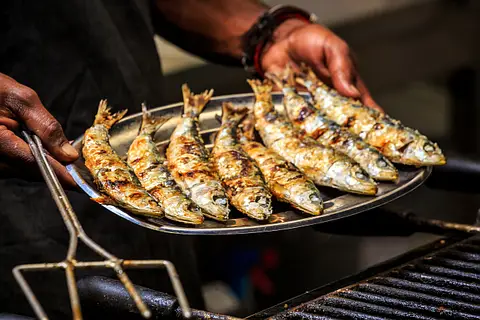The small but beloved sardine fish has a lower environmental impact and could prevent 750,000 premature deaths.
Marinated, salted, grilled, simmered in the oven with tomatoes, fried… no matter how you prepare them, sardines remain tasty and nutritious.
This small and economical fish, which is found in abundance in the seas, is the basis of delicious dishes, but it also proves to be very valuable in a broader sense. What do they testify to? research conducted by Japanese and Australian scientists after analyzing data from approximately 130 countries.
According to the data received, Replacing red meat with fish such as sardines, anchovies and herring could prevent 750,000 premature deaths a year from cardiovascular disease or diseases such as colon cancer.
At the same time, in low- and middle-income countries a diet using this type of fish is an excellent solutionbecause it is inexpensive and is an ideal food due to its high protein content, large amounts of omega-3 fats, calcium and vitamin B12, and is low in calories.

“To improve human health and the health of the planet, we need to reduce our consumption of red meat and switch to healthy, sustainable options. Compared to red meat, seafood not only provides a higher concentration of essential nutrients, but also prevents diet-related noncommunicable diseases,” the experts say in their study, published in the journal BMJ Global Health.
Added to all the positives is that they have the lowest carbon footprint of any animal food source. In particular, fish such as sardines have an environmental impact of 2.1 kg of carbon dioxide, while a serving of beef (100 g) is equivalent to 15.5 kg of carbon dioxide.
According to their calculations, the researchers concluded that consuming small fish such as these could replace 10% of the world's red meat consumption, leading to global reductions in total greenhouse gas emissions and land use by 15% and 10%, respectively, by 2050.





More Stories
Study: Replacing red meat with sardines
Stomach Pain From Stress: Miracle Drink That Will Bring Instant Relief
New study: Antidepressants show promise in treating brain tumors